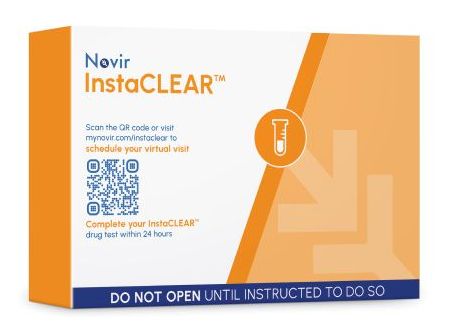Auto Dealerships at Risk Without Auto Dealers Drug Testing
Auto dealerships can be high-pressure environments, with sales goals to meet and customer satisfaction to maintain. To keep up with the demands of the job, some employees may turn to drugs to stay alert or manage stress. However, drug use in the workplace can have serious consequences, both for the employee and for the customers they serve. That’s why it’s crucial for auto dealerships to consider implementing auto dealer drug testing policies, particularly when it comes to the use of cocaine.
InOut Labs specializes in employers with multiple locations.
Cocaine and Its Risks in the Auto Dealership Workplace
Cocaine is a highly addictive stimulant. It can have serious effects on the body and mind. Often used recreationally to increase energy and focus, it can also lead to paranoia, aggression, and other harmful behaviors. According to a survey by the Substance Abuse and Mental Health Services Administration, about 1.5 million Americans over the age of 12 reported using cocaine in the past month. This prevalence means that it’s likely some auto dealership employees are using the drug, even if they haven’t been caught.
Impaired Decision-Making and Safety Hazards
The risks of cocaine use in the workplace are numerous. For one, it can impair an employee’s judgment and decision-making ability, which can be particularly dangerous when handling customer vehicles. An employee who is high on cocaine may make mistakes while test-driving a car or performing routine maintenance, putting both the customer and the vehicle at risk.
Aggression and Violence in the Workplace
Additionally, cocaine use can lead to aggression and violence, creating a dangerous work environment for other employees and customers.
Why Auto Dealers Drug Testing Is Essential
Drug testing is an effective tool for identifying employees using cocaine or other drugs. By testing both prospective and current employees, auto dealerships can send a clear message that drug use is not tolerated. This approach can deter employees from using drugs and help identify those who need assistance with addiction.
Mitigating Liability Through Drug Testing
Drug testing also helps protect the dealership from liability in case of accidents or incidents involving an employee under the influence. For example, if an employee damages a customer’s vehicle while high on cocaine, the dealership could be held responsible for any resulting damages or injuries. By implementing a drug testing policy, the dealership shows that it took reasonable steps to prevent drug use. This can help reduce potential liability.
Benefits of Implementing Auto Dealers Drug Testing Policies
Drug testing in auto dealerships helps create a safer work environment for both employees and customers. It ensures that those working with vehicles and customers are focused, safe, and making sound decisions. In the event of accidents involving employees who are under the influence, drug testing can help the dealership defend itself against liability claims.
Supporting Employee Recovery and Well-Being
Additionally, many employers who find that an employee has a substance problem offer resources and support for addiction recovery. Rather than simply firing employees who test positive for drugs, dealerships sometimes give them the opportunity to seek treatment and overcome their addiction. This reduces the stigma around addiction and shows that the dealership cares about the well-being of its employees.
Overcoming Challenges in Auto Dealers Drug Testing Policies
Implementing a drug testing policy can be challenging. Some employees may feel that drug testing is an invasion of their privacy, or that it’s unfair to penalize them for drug use that doesn’t affect their job performance. However, drug use in the workplace is a serious issue that can have far-reaching consequences, and it’s important for auto dealerships to address it head-on.
Fostering a Positive Company Culture
Instead of immediately firing employees who test positive for drugs, many auto dealerships offer the opportunity for treatment. Providing employees with the resources and support they need to recover not only helps them but also benefits the business by promoting a healthier and safer work environment. This approach can foster loyalty, reduce turnover, and contribute to a positive company culture.
Conclusion: Why Auto Dealers Drug Testing Is Vital
Auto dealer drug testing is a crucial tool for addressing drug use in the workplace, especially cocaine use. By implementing a drug testing policy, dealerships can create a safer environment for employees and customers. This policy also helps protect the dealership from liability. While drug testing is not a perfect solution, it is an important step toward fostering a culture of safety and responsibility in the workplace.


